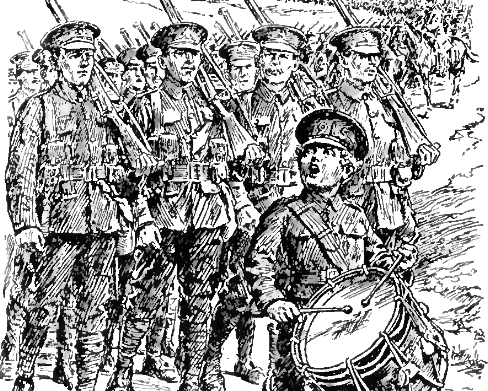<![CDATA[By September 1914 the First World War had been raging for several months, with the major Western European powers of France, Great Britain and Germany locked in conflict. The 5th September marks the anniversary of what is known as the Battle of the Marne, this event is significant, not only as the point where British and French forces managed to slow the German war machine's advance to Paris, but also for shaping the nature and shape of the war over the next four years. The German army had invaded Belgium on 3rd August 1914, with a quick and decisive victory that allowed it to bypass the Maginot Line and move onto France. The next month saw the German's progress relentlessly through French territory with a series of impressive victories. The sudden German advance had forced the British and French armies into retreat and the French government had been evacuated from Paris to Bordeaux, in fear of the capital falling into German hands. The Battle of the Marne occurred when the British and French armies launched a counter attack in the region on the outskirts of Paris. After seven days the allies achieved their first notable victory of the conflict, and halted German progress. It proved to be a portent for the rest of the brutal war. Combined the Allied and German armies suffered a total of 500,000 casualties, a sobering example of the lethal nature of modern mechanised warfare. By the 9th September the German army had become divided, and the forces at the Marne started to retreat. When they arrived at an area near the River Aisne, the German soldiers dug trenches to fortify and secure the position. This is the point where trench warfare began, the nature of which meant that even advancing a half mile could be a bloody ordeal costing thousands of lives. Even when not having to advance through a barrage of machine gun fire, the conditions for soldiers on both sides were abysmal. Disease was rife in the trenches, and supplies of food, drink and other essentials were limited and difficult to replenish. Defeat at Marne was a complete catastrophe for the German war strategy. In 1905, Count Alfred Von Schlieffen had created a plan with which Germany could successfully survive a war with the countries of the Triple Entente; France, Britain and Russia. To avoid a war on two fronts, Germany would have to defeat France within six weeks, before moving the bulk of its forces to the Eastern Front to fight the Russian forces. Defeat at Marne left this plan in tatters, and could be viewed as a starting point for Germany's eventual defeat. With the benefit of hindsight, it is clear just how significant the Battle of the Marne was, for the war, and the history of Europe. The Allied victory stopped the German advance on Paris, and served as a crucial triumph for Britain and France. More importantly, it changed the nature of the war, delivering soldiers from both sides into the static, damp and lethal despair of trench warfare. ]]>
A Century Since the First World War Grounded to a Halt
